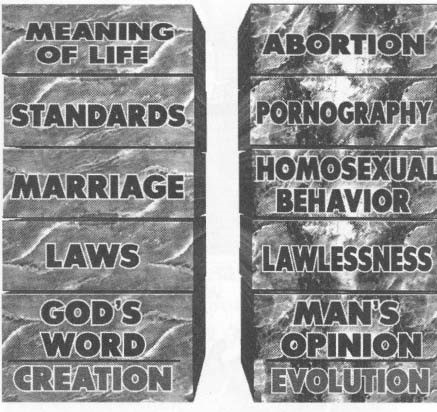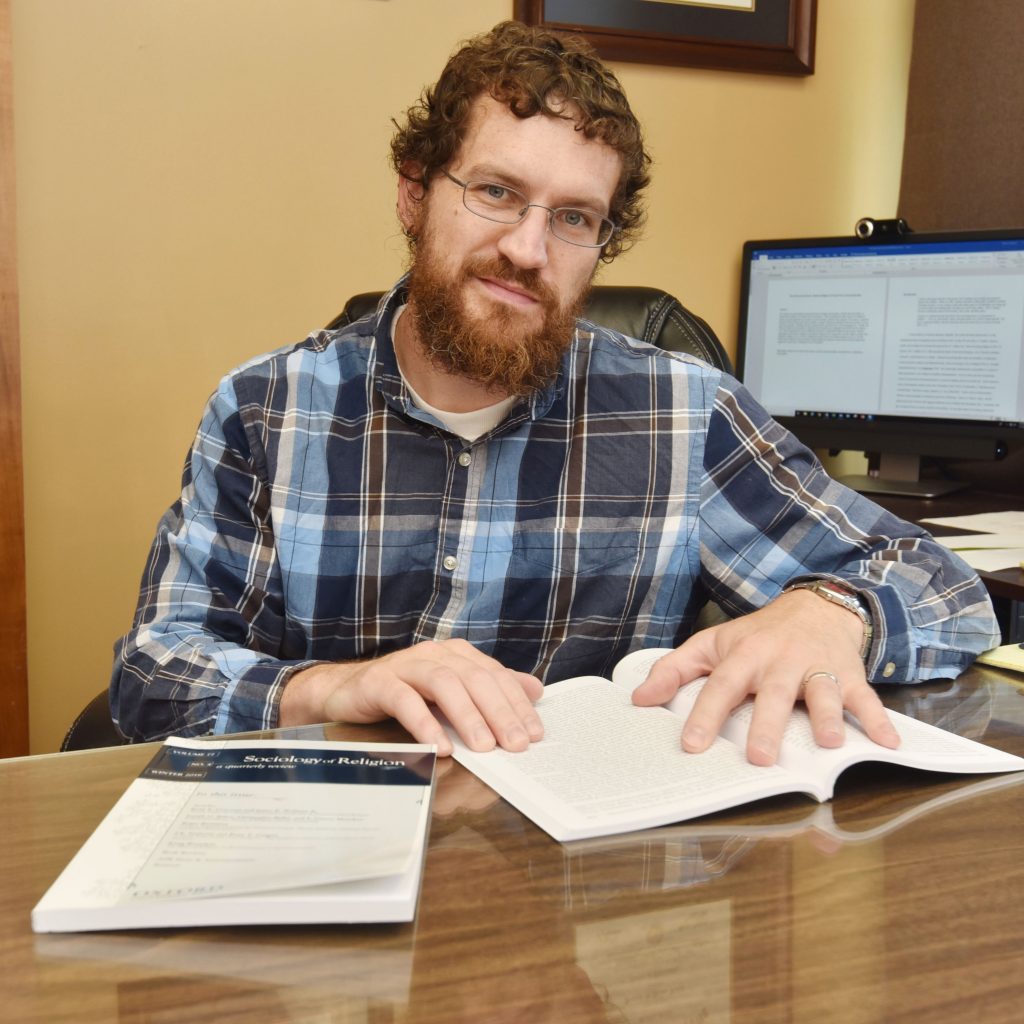
Crusading for Moral Authority: Christian Nationalism and Opposition to Science in the United States
By Joseph O. Baker, Samuel L. Perry and Andrew L. Whitehead

On August 30 2020, Los Angeles megachurch pastor John MacArthur told his congregation “There is no pandemic.” Grace Community Church was meeting in defiance of local and state ordinances against large in-person gatherings. After citing a common misinterpretation of data about COVID-19 from the Centers for Disease Control, MacArthur stated that he is suspicious of the virus because he does not personally know anyone who is sick with it. Rather, he believes the pandemic and subsequent calls to limit large gatherings have more to do with the spiritual realm: “We know there are reasons for this that have nothing to do with the virus. There’s another virus loose in the world, and it’s the virus of deception, and the one who is behind the virus of deception is the arch-deceiver, Satan himself. And it’s not a surprise to me that, in the midst of all this deception, the great effort that is going on is to shut down churches that preach the gospel.” Members of MacArthur’s church would later come down with the virus, but he also managed to get clearance from the Los Angeles County Department of Public Health to continue holding services. His most recent jeremiads publicly proclaim the pandemic is paving the way for the Antichrist.
Throughout the summer of 2020 and into the fall, as the coronavirus pandemic raged on, MacArthur and others have repeatedly argued that, because the United States was purportedly founded on Christian values, the move by governmental leaders to limit in-person worship for Christians was a violation of their constitutional rights. Dismissing the preponderance of scientific evidence about the seriousness of COVID-19, MacArthur and other Christian nationalists routinely pit what they see as a command from the Christian scriptures to worship in person against alternative sources of authority—like the scientific community—that highlight the public health dangers of large group gatherings during the height of a pandemic from a communicable airborne disease.
We document the strong connections between Christian nationalism and opposition to science among the American public in our new article “Crusading for Moral Authority.” In a national sample of American adults, respondents’ levels of Christian nationalism are the key predictor of whether they reject evolution, support the teaching of creationism in public schools, and perceive mainstream science as morally threatening. Ongoing research which we are conducting with new data tells much the same story. The ongoing news cycle of pandemic-related stories about resistance to public health measures and broader patterns of data all point toward the intimate, durable, and consequential relationship between Christian nationalism and resistance to aspects of science perceived as culturally threatening. But why is this connection so strong?
More than a decade ago, I (Joseph) started doing research about opposition to evolution in the United States, as well as how religion related to moral evaluations of mainstream science. The reason I was interested in this topic is straightforward: personal experience. I grew up in rural Appalachia, and all around me were people who denied realities of evolution and instead supported various versions of creationism. This was truly perplexing from a scientific standpoint. Why were people so opposed to something that, based on mountains of empirical evidence, clearly helps explain the natural world we live in? And why support an alternative view based on no evidence that could pass scientific muster?
To get a better understanding of this world from the inside, I immersed myself in the materials of creationism. I read creationist textbooks and polemics. I read archival materials about the history of creationism. I went to creation “museums” in Texas and Kentucky. Engaging the subculture of creationism with a critical eye makes it readily apparent that these issues are not actually matters of science, except on the surface. Instead, they are matters of politics, status identity, and cultural conflict. “Culture wars,” for shorthand. Don’t take our word for it though, feast your eyes on this on-the-nose graphic from an Answers in Genesis textbook below. As sociologist John Evans has extensively theorized and empirically documented, disputes over religion and science in the U.S. are about morals, not knowledge. We’ll come back to this idea of knowledge in a minute, though.

That conservative religious opposition to particular aspects of science is moral rather than formally epistemological is plainly evident in one of the most visible manifestations of opposition to the perceived moral threat of science: The Creation Museum in Petersburg, Kentucky. Ethnographic researchers have meticulously dissected how the goal of the Museum is no less than the reclamation and “righting” of America.” The Museum has a layout akin to that of a “hell house.” Shout out to those of us who have had the misfortune of enduring one of these (cheers, if you haven’t). Although there are the trappings of science at the beginning of the Museum with dioramas of archaeological digs and such, the most critical middle portion—appropriately christened “Culture in Crisis”—attempts to convince visitors of the evils of evolution by showing them all the social ills it supposedly leads to. While there are also some casual references to war and genocide, this section’s video vignettes primarily focus on issues related to the preservation of conventional systems of authority regarding gender and sexuality. Here, in the proverbial dark heart of the Museum, the political and moral roots of opposition to scientific authority are laid bare as culture war battlegrounds.
Take for example the photograph I took of the entrance to the “Culture in Crisis” section (at the top of this blog), which is a wall of magazine covers depicting culture war issues, particularly abortion, homosexuality, and prayer in public schools. Tellingly, the wall is framed at the top left and bottom right by Newsweek covers reading: “The Decline and Fall of Christian America.” The bold red words form a lone cross against a pitch-black background. In this material culture testament to opposing aspects of science perceived as morally threatening, the ultimate goal of the reclaiming of America’s privileged status as a “Christian nation” by waging and winning the culture war is made abundantly clear.
Many contemporary debates about science and religion in the U.S. can be best understood primarily as an aspect of the broader movement by Christian nationalists to remake the public sphere in their own image—one that is white, traditionally masculine, and heterosexual. But why the obsession with seemingly unrelated matters such as evolution and skepticism about mainstream science? In a word, authority. More specifically, perceived moral and therefore cultural authority. In order to justify its hierarchical worldview that seeks to (re)establish traditional power structures centered around race, gender, and sexuality, Christian nationalists appeal to particularistic, “literalist,” and exclusivist views of the Bible. To the extent that anything is perceived as undermining biblicist justifications for particular arrangements of social power, it is to be actively combated as an agent of evil. Enter evolution.
Now we can and should revisit the idea of an epistemological conflict between (particular aspects of) science and (particular subcultures of) religion, but from a new vantage point. John Evans is undoubtedly correct that there is not an inherent conflict between science and religion, and that the disputes that do occur are matters of morals, culture, and status politics. But if we adopt asociological rather than philosophical understanding of epistemologies, then we can gain quite a bit of explanatory purchase on the structure, form, and character of the conflicts about science and religion in the U.S.

More specifically, thinking about approaches to knowledge as subcultural—that is, what is viewed as knowledge is constructed differently by communities through interaction, both face-to-face and mediated—allows us to see that although issues of science and religion are primarily political, they are nonetheless understood as being about knowledge within the subcultures of opposition. Hence the production and consumption of textbooks, academic-looking journals, museums, and the like. As the picture from the Creation Museum gift shop shows, the production of a particular moral culture that is perceived by believers as grounded in empirical fact is a central aim of creationist endeavors. For those who are so inclined, there is no shortage of curricula for educating young believers about the “facts” of creationism, and the culture wars in turn.
This, of course, is not something that is only being done by creationist subcultures. Rather, it is done by all subcultures. Having also spent an inordinate amount of time in other subcultures considered scientifically dubious, such as those centered around ghosts, UFOs, or Bigfoot, I can attest that members of these communities also perceive their activities as rooted in knowledge, albeit knowledge that is not accepted by mainstream science. “Stigmatized knowledge,” in short. The main point is this: If we move away from conceptualizing “knowledge” as a monolithic set of facts and instead critically evaluate how different communities produce, distribute, and espouse what they perceive as knowledge, previous impasses in the realm of formal epistemology become open matters for social scientific analysis. To be clear, we are not saying that subcultural, “folk epistemologies” are factually correct; only that if we study how and why communities believe them to be so, then can we make considerable headway on empirical studies of how science and religion intersect in different ways, and among different communities. In the case of Christian nationalism in the United States, these disputes are primarily about status politics, and should be understood as such, regardless of the trappings of science.
All of this has implications that extend well beyond the academic study of science and religion, or whether or not people accept the evolutionary origins of humanity. To take but the most pressing example, in the ongoing fight against COVID-19, issues of trust in scientific and public health experts are paramount, whether it concerns the efficacy of wearing masks, avoiding large in-person gatherings, or the eventual push to immunize populations. A long history of subcultural resistance to aspects of mainstream science that are perceived as morally and politically threatening lays the groundwork for extensive and ongoing resistance to various pandemic mitigation efforts among Christian nationalists.
Christian nationalists are far more likely to oppose pandemic mitigation efforts to protect vulnerable people, and instead much more likely to champion protecting the economy and “liberty.” Similarly, Christian nationalists are much more likely to express and anti-vaccine attitudes, and consequently will pose a challenge to herd immunity in the U.S. once vaccines for COVID-19 are widely available. Thus, John MacArthur is but one example of a much larger trend. While this is not the only negative consequence of the long-standing opposition to science by Christian nationalists, it is certainly the issue of most immediate concern.
Overall, our research shows that Americans like John MacArthur and his congregants who adhere to a Christian nationalist ideology envision a world in which their own tribal authorities maintain pre-eminence over public knowledge; and even more, the public understanding of good and evil. To the extent that science and scientists are perceived as threatening control over moral order, they are at best distrusted as superlatively blinded and biased, and at worst viewed as malevolently hostile to faith itself. Taken in light of Christian nationalism’s connection to engaging in risky COVID-19 behaviors, the collateral damage of this war for moral authority―not unlike that of actual military conflicts―will ultimately be measured in body count.

Joseph O. Baker is an Associate Professor in the Department of Sociology & Anthropology at East Tennessee State University, and the editor of Sociology of Religion. His primary areas of research are religion, deviance, and American politics.
You can read his Researcher Profile here.
Samuel L. Perry is an Associate Professor of Sociology and Religious Studies at the University of Oklahoma. The author of numerous articles and several books, his most recent books are Addicted to Lust: Pornography in the Lives of Conservative Protestants (Oxford University Press, 2019) and (with Andrew Whitehead)Taking America Back for God: Christian Nationalism in the United States (Oxford University Press, 2020).
Andrew L. Whitehead is an Associate Professor of Sociology and Director of the Association of Religion Data Archives (theARDA.com) at the Center for the Study of Religion and American Culture at IUPUI. He is the author (with Samuel Perry) of Taking America Back for God: Christian Nationalism in the United States (Oxford University Press, 2020).
Bibliography
Bader, Christopher D., Joseph O. Baker, and F. Carson Mencken. 2017. Paranormal America: Ghost Encounters, UFO Sightings, Bigfoot Hunts, and Other Curiosities in Religion and Culture, 2nd edition. New York: NYU Press.
Baker, Joseph O., Samuel L. Perry, and Andrew L. Whitehead. 2020. “Crusading for Moral Authority: Christian Nationalism and Opposition to Science.” Sociological Forum 35(3): 587–607.
Evans, John H. 2018. Morals Not Knowledge: Recasting the Contemporary U.S. Conflict Between Religion and Science. Berkeley, CA: University of California Press.
Ham, Ken (ed.) 2006. The New Answers Book: Over 25 Questions on Creation/Evolution and the Bible. Green Forest, AR: Master Books Inc.
Perry, Samuel L., Andrew L. Whitehead, and Joshua B. Grubbs. 2020. “Culture Wars and COVID‐19 Conduct: Christian Nationalism, Religiosity, and Americans’ Behavior During the Coronavirus Pandemic.” Journal for the Scientific Study of Religion 59(3): 405–416.
Perry, Samuel L., Andrew L. Whitehead, and Joshua B. Grubbs. Forthcoming. “Save the Economy, Liberty, and Yourself: Christian Nationalism and Americans’ Views on Government COVID-19 Restrictions.” Sociology of Religion https://doi.org/10.1093/socrel/sraa047.
Trollinger, Susan L., and William V. Trollinger Jr. 2016. Righting America at the Creation Museum. Baltimore: Johns Hopkins University Press.
Whitehead, Andrew L. and Samuel L. Perry. 2020. Taking America Back for God: Christian Nationalism in the United States. New York: Oxford University Press.
Whitehead, Andrew L. and Samuel L. Perry. 2020b. “How Culture Wars Delay Herd Immunity: Christian Nationalism and Anti-Vaccine Attitudes.” Socius 6: 1–12.
